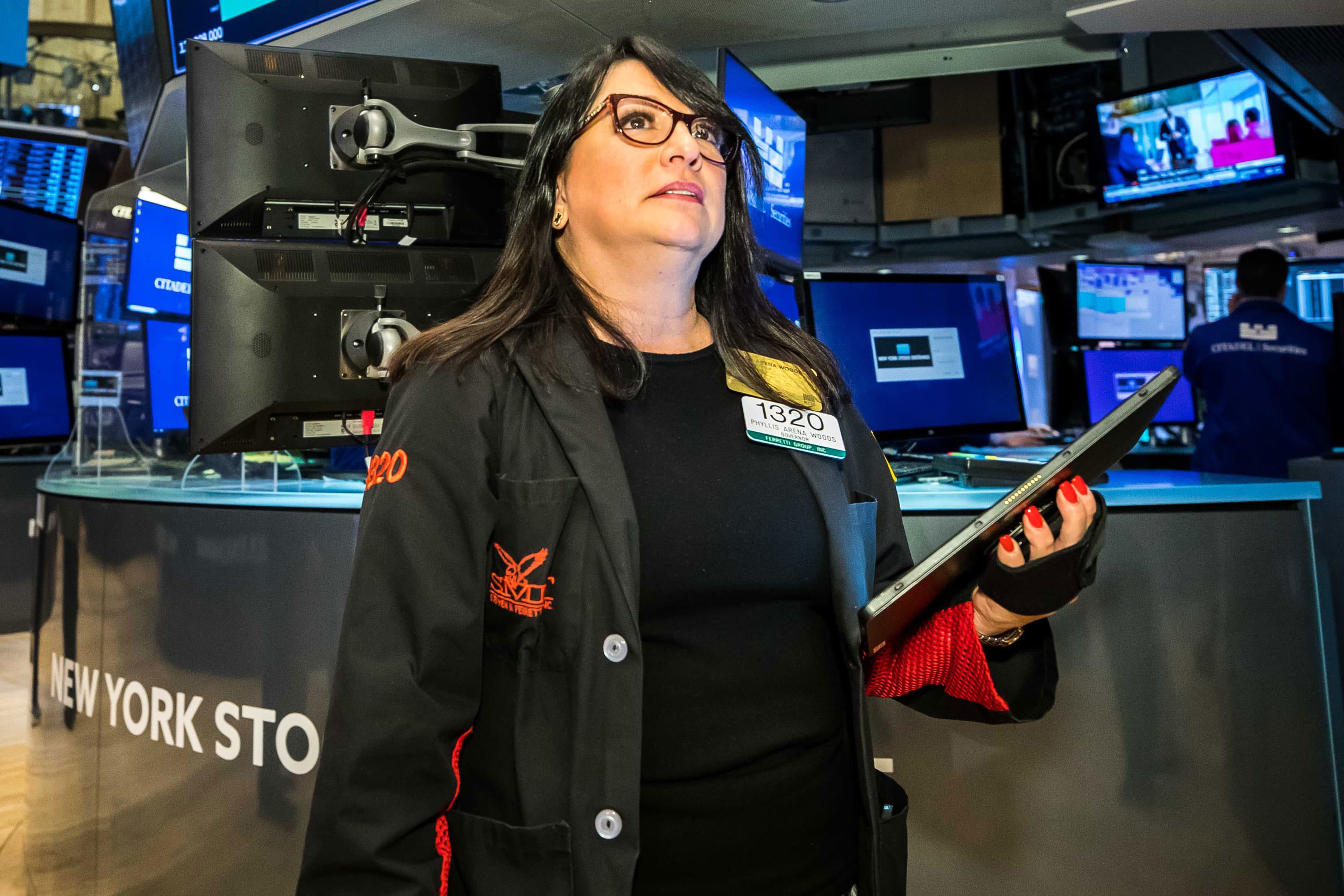Dow futures climb nearly 500 points as commodity prices ease amid war in Ukraine

Stock futures posted strong gains early Wednesday as investors assessed a surge in commodity prices and high inflation while the war in Ukraine continues.
Futures tied to the Dow Jones Industrial Average rose 458 points, or about 1.4%. S&P 500 futures climbed 1.6% and Nasdaq 100 futures gained 2%.
The gains came amid an easing in commodity prices that have spooked the broader market. Energy and agriculture products in particular have catapulted higher amid the fighting in Ukraine, while some metals also have posted major gains.
West Texas Intermediate crude, the U.S. oil benchmark, was last down 2.2% to $120.92, while Brent crude, the international standard, fell 1.7% to $125.78. Wheat futures also were sharply lower, falling 6.3% to $1,206 a bushel, though palladium continued its march higher, rising 3.8% to $3,082 per ounce.
Treasury yields also climbed as investors focused on the overall trend of higher inflation. The benchmark 10-year note rose about 3.7 basis points to 1.91%. A basis point equals 0.01%.
Pepsico shares rose 1.8% in premarket trading after the soft drink giant said it will suspend sales in Russia, though it will continue to sell snacks and essentials such as baby formula. Elsewhere, shares of dating service Bumble soared nearly 23% after it reported profit and expected growth that was much better than Wall Street expectations.
The major averages all closed lower Tuesday after a day of whipsaw trading. The Dow gave up a 585-point gain to end the day lower by 184 points, or 0.5%, falling deeper into its correction. The S&P 500 slid 0.7%, also moving into correction territory. The Nasdaq Composite lost 0.2%, after entering bear market territory Monday.
The market volatility was driven by uncertainty among investors as they continued to assess surging prices in commodities like oil, gasoline, natural gas and precious metals. That fueled concerns about a slowdown in global growth amid surging inflation.
It remains to be seen if the Federal Reserve will manage a soft economic landing, but the U.S. should be able to avoid a recession, according to Ross Mayfield, investment strategy analyst at Baird.
“The strength of the U.S. labor market, consumer and aggregate corporate sector should act as the weight to keep us out of recession near-term,” he told CNBC. “Overall, volatility is likely to persist, [there’s a] wide range of outcomes possible in Ukraine, but the fundamentals of the U.S. economy still look decent, especially if the Fed can navigate raising rates without breaking demand.”
Energy stocks were a bright spot in the market as oil prices continued to climb, jumping to their highs of the session as President Joe Biden announced a ban on Russian fossil imports, including oil, in response to the country’s invasion of Ukraine. That was after oil hit a 13-year high of $130 to start the week.
Other commodity prices resumed their push higher, including nickel, which touched a new record above $100,000 a metric ton.
Treasury yields also spiked, with the benchmark 10-year note adding close to 10 basis points to 1.85%, as inflation fears led investors to shed bonds.
Earnings continue Wednesday with Campbell Soup, Crowdstrike and Marqeta all set to report.
On the economic data front, investors are looking forward to homebuying data from the Mortgage Bankers Association as well as the Job Openings and Labor Turnover Survey, or JOLTS.




